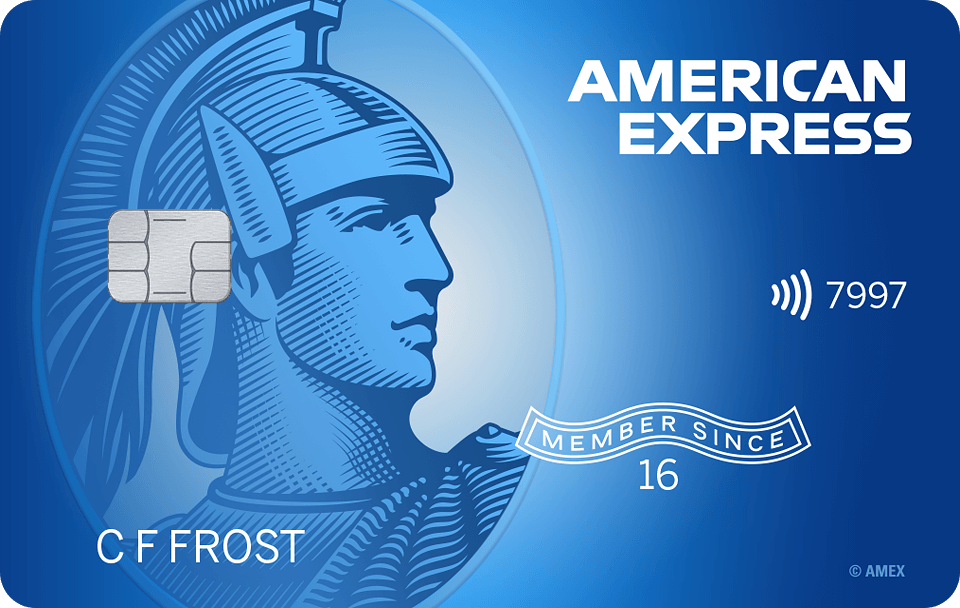Blue Cash Everyday® Card from American Express review: Good for grocery shoppers and drivers on a budget

Great for cash back for families

Annual Fee: $0
This content is curated by Intuit Credit Karma’s Editorial team using data from members who were approved for this card or similar cards, or who self-matched this card or similar cards. Intuit Credit Karma receives compensation from third-party advertisers, but that doesn’t affect our editors’ opinions. Our third-party advertisers don’t review, approve or endorse this content. Information about financial products not offered on Credit Karma is collected independently. Our content is accurate to the best of our knowledge when posted.
Here’s the average credit limit of members who matched their Blue Cash Everyday® Card from American Express or similar cards.
% of members by credit limit range
The average credit limit for members who have matched with this card or similar cards is $7,517, with $1,000 being the most common.

Here’s the average credit score of members who matched their Blue Cash Everyday® Card from American Express or similar cards.
% of members by credit score range
The average credit score for members who have matched with this card or similar cards is 695, with 810 being the most common. Note this is just one of the deciding factors when it comes to getting approved.

Member stats
Updated daily

31%
Average credit utilization (or what percent of the card’s credit limit is being used) of members who matched with this card or similar cards.

45 years
Average age of members who matched this card or similar cards.

$93,642
Average annual income of members who matched this card or similar cards. Note: Income may be estimated for some members by Credit Karma and may differ from members’ actual incomes.
Pros and cons
 Image: yes
Image: yesEarn cash back for purchases at U.S. supermarkets, gas stations and online retailers
 Image: yes
Image: yesNo annual fee
 Image: yes
Image: yesAverage welcome bonus
 Image: Con
Image: ConCash back limits and exclusions on bonus categories
 Image: Con
Image: ConLimited redemption options
 Image: Con
Image: ConCharges a foreign transaction fee
Blue Cash Everyday® Card from American Express review
Updated December 20, 2024
This date may not reflect recent changes in individual terms.
Written by: Tim Devaney
6 things to know about the Blue Cash Everyday® Card from American Express
1. Earn cash back with no annual fee
If you’re on a budget and trying to cut back on spending, the Blue Cash Everyday® Card from American Express gives you a chance to earn cash back on your everyday purchases with no annual fee.
You’ll earn …
- 3% cash back on up to $6,000 each year in purchases at U.S. supermarkets (after that, you’ll only get 1% back)
- 3% cash back on up to $6,000 each year in purchases at U.S. gas stations (after that, 1% back)
- 3% cash back on up to on up to $6,000 each year in U.S. online retail purchases (after that, 1% back)
- 1% cash back on other purchases
2. No annual fee to weigh against your cash back
The Blue Cash Everyday® Card from American Express charges a $0 annual fee.
This gives the card a huge advantage over those that charge annual fees. While you might not earn as much cash back as you could with other cards, at least there’s no annual fee cutting into your earnings, and you don’t have to juggle your spending to figure out whether or not the card is worth it.
3. Limited redemption options
You’ll have to redeem your rewards for statement credits or during checkout at Amazon.com.
If you’re looking for more flexible redemption, check out a cash back card like the Bank of America® Customized Cash Rewards credit card instead.
4. Average welcome bonus
The Blue Cash Everyday® Card from American Express offers a welcome bonus of $200 as a statement credit after you spend $2,000 on purchases in the first 6 months from your account opening.
This is better than nothing, but we’ve seen better welcome bonuses from cards that charge annual fees (and even a few that don’t).
5. Low intro APR offer could help you in a pinch
The Blue Cash Everyday® Card from American Express features an introductory 0% APR on purchases and balance transfers for the first 15 months.
After the intro expires though, your APR on purchases and balance transfers spikes to a variable rate of 20.24% - 29.24%. There’s a balance transfer fee: Either $5 or 3% of the amount of each transfer, whichever is greater. And balance transfers must be requested within 60 days of account opening to qualify for the intro rate.
6. Not a good option for international travel
The Blue Cash Everyday® Card from American Express charges a foreign transaction fee of 2.7%, and American Express cards may not be as widely accepted abroad as cards on the Visa or Mastercard networks.
So if you’re planning a big trip, one of our favorite travel credit cards with no annual fee might be a better bet.
Who this card is good for
The Blue Cash Everyday® Card from American Express caters to people who are trying to save money by cooking at home and only driving every now and then.
If you’re on a budget, there’s no pressure to overspend to try to make up for an annual fee.
But if you go out to eat on a regular basis, you might be better off with another cash back credit card that rewards you for dining.
Not sure this card is right for you? Consider these alternatives.
If the Blue Cash Everyday® Card from American Express isn’t right for you, you might be interested in one of these other credit cards.
- Blue Cash Preferred® Card from American Express: This card is a great option for grocery shoppers who cook for a big family.
- Capital One Savor Cash Rewards Credit Card: If you enjoy dining at restaurants, this card is worth checking out.
Member reviews
Most helpful positive review
April 23, 2023
Great Limit
— Credit Karma Member
I wanted to build a relationship with AMEX while in college so I could be a great fit for a platinum upon graduation. I opened this acct in Jan 2019 with an initial $1k limit. I never maxed it out or used more than $300. My scores were always in 700s but I never received an increase. I stopped using the card 2022 but didn’t close it to keep our relationship. May 2022 right before graduation, they increased it to $3,500. It was great but by then I had limits over $10k. Still didn’t use the card. 6 months later, it was increased to $8,500 with a 6.99% APR promotion. I started using the card again. Now today, April 2023, I requested an increase and asked for $30k. They counter-offered $22k!!!! BIGGEST LIMIT YET. I guess it took me not using the card to finally get an increase but I’m happy now. My scores are EQ 741/TU 742 and Experian 768.
Most helpful negative review
November 30, 2023
Don't apply
— Credit Karma Member
I have 710+ credit and make 110k a year and currently have 30% utilization total on 43k credit availability from credit cards I have now all over 8k in limits. Well they approved me, but for $1,000. It's a joke. You'll take the credit hit and get no benefit from it. This is shameful.


